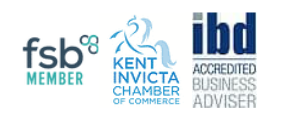Below are a few practical ideas on how almost any sole trader, small business or Limited Company can accelerate their cash flow:-
One of the best ways these days (C21st) is to gradually move all your customers over to Electronic Payments to pay you, rather than have them send you cheques (so C20th). Initially this involves handing all your customers your bank account details, so they can pay you directly and (almost) instantaneously. This requires you to change your financial procedures, so that your Finance Director / Manger or Finance Clerk has live access electronically to your bank accounts, to see who has paid you and when etc.
– Electronic Payments starts to take the problems of physical cheques, the need for a personal signature and the infamous risk (excuse) of blaming the postal system, as Electronic payments are immediate (though banks always quote 2-3 hours), so customers don’t really have any excuse not to pay you on time.
So, when is the best time to start chasing invoices for payment?
– All your customers should be signed up to your own Customer Terms and Conditions, in which you should have included a clear / explicit timetable when Invoices are due for payment and what the consequences are for not paying on time, so that there is NO room for excuses. These Ts & Cs should also clarify that ownership of the delivered good / services is not transferred from your business to your Customer until payment is made in full, so that even delivered goods remain legally yours until you are satisfied with the customers has paid everything due.
– As much as you would like to have high / usurious interest charges for late or non-payment, for example having 2% / month late interest charge in your Standard Customer legally-enforceable contract, this would probably invalidate the whole Customer contract and the of Terms & Conditions as it is legally “unreasonable”. At which point, I strongly suggest you should always draft up a standard customer contract and get your friendly solicitor to advise you on what you can and cannot put in your Standard Ts & Cs to make it legally enforceable. Make sure to include delivery T & Cs, Acceptance of delivery) Ts & Cs and Payment Ts & Cs, remembering to include how and to whom and by when the Customer should complain about your delivery to them, or quality of your product or service. If they then do not raise a Ts & Cs dispute with the specified person in your company, then payment should follow the timetable defined in their contract.

